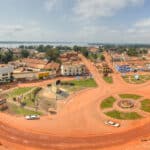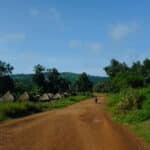Over the summer, as part of the Crossroads project, ASF is bringing you the latest news about international justice. Our teams on the ground give you the lowdown. This week, Adrien Nifasha, International Justice Programme Coordinator, talks to us about advances in international justice in Burundi. The country is undergoing a political crisis for the past months. This exceptional situation obviously does not mean the end of victims needs with regard to access to justice; quite the contrary. Find out how Burundi has opted for transitional justice trough the establishment of the Truth and Reconciliation Commission (TRC) and the hopes placed in this Commission by victims.

Q: Could we say that there has been progress in international justice in Burundi over the last six months?
A: International justice in Burundi is progressing by way of transitional justice. In December 2014, the Truth and Reconciliation Commission (TRC) was finally established after 14 years of waiting, in other words since the Arusha Agreement for Peace and Reconciliation was signed in 2000. In light of this agreement, this Commission is responsible for investigating and establishing the truth about serious violations of human rights and international humanitarian law. It is also empowered to qualify all of these violations. This commission is, for now, in a preparatory phase: preparing internal rules, rules of procedure, recruiting and training personnel, etc. It is a step forward and hopefully the TRC will soon be operational to the benefit of the people of Burundi.
Q: Will victims and affected communities have better access to justice?
A: Victims of crimes committed between 1962 and 2008 (time period covered by the TRC) are putting their hope in the work of the TRC. If you listen to those who have spoken about it in the Crossroads project video you can hear that they are delighted the commission has been established. They hope that, through its mandate, it will contribute to better access to justice. The results of this commission’s work are therefore eagerly awaited by the people, especially the victims of crimes, so that justice may be done. While preparation may already hint at what can be expected, feelings of satisfaction or dissatisfaction can be truly verified and assessed as soon as the commission’s activities begin.
Q: How is ASF contributing to the establishment of the Truth and Reconciliation Commission?
A: The Crossroads project in Burundi is working to support the TRC so that it may be technically equipped and ready to commence its activities. We are also supporting the lawyers so that, in turn, they are prepared to provide quality legal advice and assistance to the victims and to all those who will participate in the commission’s hearings. The general aim of this support is to contribute to the respect of due process in accordance with international standards.
Q: Could you be more specific?
A: Our support takes the form of reinforcing capacity, research activities, technical support in the drafting of legal texts and operational tools for the preparatory phase, legal aid and legal assistance to be provided to victims, witnesses and even alleged perpetrators in the actual stage of investigative work, etc. Part of this support has already been put into practice and the rest will be soon. But this support is conditioned by the independence and neutrality of the TRC staff – including its commissioners – as well as by respect for the rights of victims and other people who will be invited to participate. We also included ‘red lines’ detailing these conditions in a position paper that we shared, explained and agreed with the main partners of transitional justice in Burundi, including the TRC.
Q: Burundi is undergoing a political crisis for the past weeks. How does this situation impact on how past crimes are dealt with?
A: The context of insecurity that Burundi is currently experiencing obviously does not mean the end of victims’ needs with regard to access to justice; quite the contrary. The support of ASF in the process of transitional justice, and hence of international justice, in Burundi meets the actual needs expressed by the beneficiaries. This especially includes the TRC, lawyers and especially victims. This is the result of an intervention strategy that was settled on early in the project and regularly updated after ad hoc analysis of the changing context and needs of stakeholders. We hope soon to be able to continue this work with all parties including the TRC, which is truly a key player.
The Crossroads project: convinced that trying crimes of the past can help build a better future, ASF and its partners, ASF Canada and INSEC, support access to international criminal justice for the most vulnerable people whilst respecting the rule of law and international standards. The project involves six countries on three continents, with the specific aim of strengthening justice systems in the six countries in question. Discover the stories of those involved in international justice in Burundi, Colombia, Democratic Republic of Congo, Guatemala, Nepal and Uganda. Read and watch their testimonies www.roadtojustice.eu.
Cover picture: Burundi © 2014 Alexis Bouvy / Local Voices



